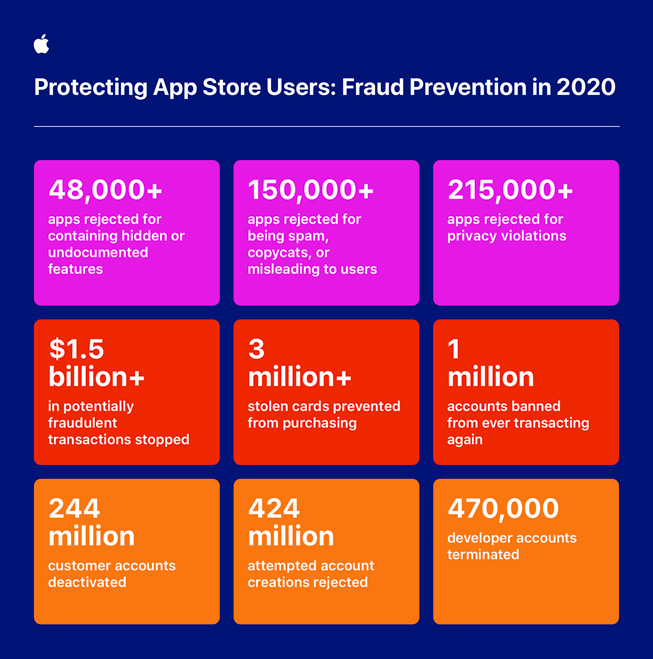The reasons for the rejections and removals are apparently diverse. According to Apple, many of these apps weren’t finished or functioning properly, or didn’t have a sufficient mechanism to moderate user-generated content. But the tech giant also said it rejected over 215,000 of them for various kinds of privacy violations; over 150,000 for being spam, copycats, or misleading to users; and over 48,000 for containing hidden or undocumented features. Additionally, the company boasted that it protected users from over US$1.5 billion (~RM6.2 billion) in potentially fraudulent transactions.
It’s quite clear what Apple is attempting to do – publicly making the case that the conditions it imposes and enforces on developers ensure its App Store is a safe and trusted place for consumers. The company’s critics, on the other hand, would describe this as an oppressive monopoly. Unsurprisingly, the timing of Apple’s blog post coincides with its high-profile court battle with Epic Games, which is suing the former for its anti-competitive practices. Epic wants to pry open Apple’s “walled garden” so it can bypass the 30% commission Apple slaps on in-app purchases. “Epic wants us to be Android, but we don’t want to be,” said Apple lawyer Karen Dunn, according to CNBC. The company argues its stringent App Store rules are the reason why the Android system has far worse security statistics. (Source: Apple, CNBC. Text image: Apple.)
